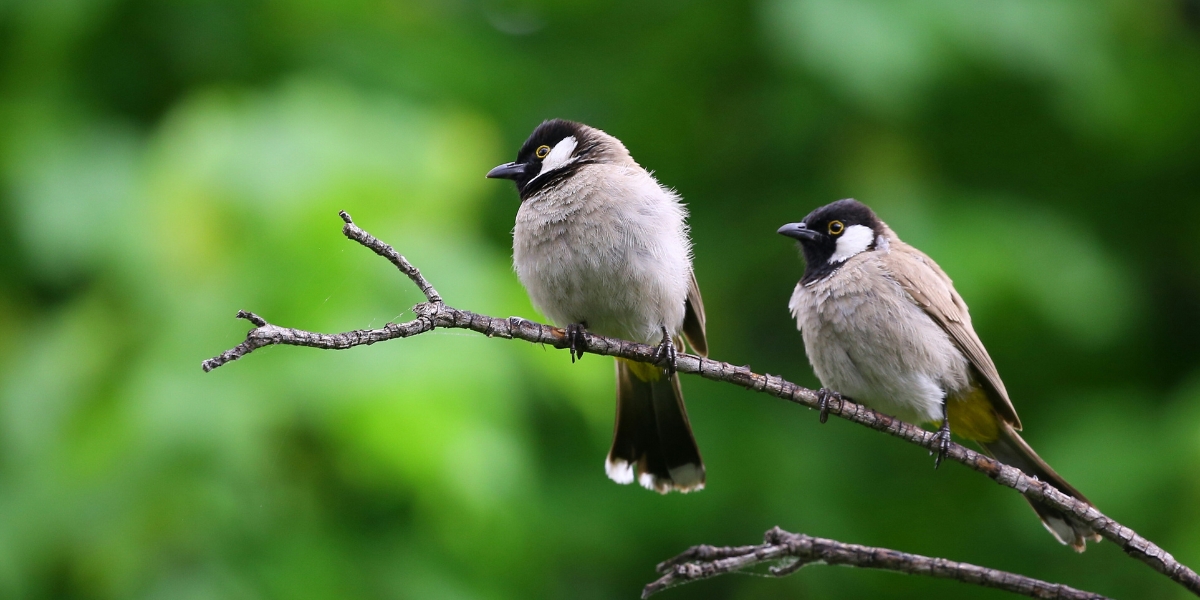Bird droppings come in a range of colors, with white and black being the most common. The color of bird poop can provide insight into a bird’s health, diet, and digestion. Understanding what accounts for the typical white or black coloring can help bird owners monitor their pet’s well-being.
When it comes to bird waste, the typical color is white with a black cap or entirely white. But what causes bird poop to be white or black? The answer lies in the composition and purpose of the droppings.
Normal Bird Poop: Composition and Characteristics
To understand different poop colors, it helps to first look at normal, healthy bird feces.
The bulk of bird droppings consists of fecal matter from the digestive tract. This gives poop its characteristic brown or greenish tint. Fecal matter contains waste material from food the bird ate, including bits of undigested matter like seed hulls or insect skeletons.
The white portion comes from urine. Bird urine contains high levels of uric acid and calcium in the form of urates. These urates emerge as a white paste-like substance.
Meanwhile, the black cap on top stems from the bird’s cloaca. This internal chamber releases both waste and reproductive material. The blackish pigment comes from the lining of the cloaca.
Normal droppings are loose enough to splash slightly on impact. The fecal portion is well-formed, not runny or liquid. The frequency of pooping varies by species, from every 10-15 minutes for small birds to every 2 hours for larger pets.
The Role of Diet in Bird Poop Color
What a bird eats directly influences the color and texture of the fecal portion of poop due to changes in waste composition.
Fruits and berries with high water content result in looser, runnier poop. Intact seeds from vegetables move through undigested. Bits of bright red tomatoes or oranges might tint poop red or orange.
Diets high in dark leafy greens like kale or insects with black shells or legs can darken poop closer to black, greenish, or brown. Iron-rich foods may also cause darker poop.
Consuming excess calcium from sources like eggshells or supplements can turn poop whiter with extra urates. Lack of hydration produces more concentrated, chalkier urates.
But while diet adjusts normal poop color shades, more significant changes to black or white deserve attention.
Understanding Black Bird Poop: Signs of Potential Health Issues
While bird poop is normally brownish or greenish, black feces signal potential health problems. Seeing your bird pass all-black stool warrants an urgent vet visit.
Causes of Black Poop
There are a few possible causes of black bird droppings to be aware of:
- Bleeding in the upper GI tract: Black poop caused by blood from bleeding in the crop, proventriculus or other upper digestive organs.
- Bleeding in the lower GI tract: Intestinal bleeding turns poop black and tarry with a noticeable odor.
- Liver disease: Black droppings can stem from disorders like cirrhosis that alter blood metabolism in the liver.
- Parasites: Coccidia protozoa infections may damage the intestinal lining and cause bleeding.
- Iron toxicity: Overdosing water-soluble iron supplements leads to black stool.
- Lead poisoning: Ingesting lead materials results in black droppings within 24 hours.
- Specific infections: Bacterial, viral and fungal diseases like avian gastric yeast can cause black poop.
- Gastrointestinal obstruction: Impactions blocking the GI tract lead to bleeding and black stool.
Seeking Urgent Care
Black droppings signify a serious health issue requiring immediate veterinary evaluation. Catching and addressing the underlying cause early significantly improves prognosis.
With intestinal bleeding, rapid treatment helps prevent dangerous fluid and protein loss. Starting GI obstruction relief promptly minimizes complications.
Do not wait to see if symptoms resolve on their own. Call your vet and bring a fecal sample for timely diagnosis and care.
White Bird Poop: Causes and Implications
While normal bird poop contains some white urates, all-white or excessively pale droppings can signal certain health issues. However, diet is the most common culprit behind white stool.
Dietary Causes
What a bird eats can lighten its poop through the following mechanisms:
- High calcium foods: Diets high in calcium-rich foods like eggshells whiten poop with extra urates.
- Limited diet variety: Monotonous seed-only diets low in pigment result in pale stool.
- Dehydration: Water loss concentrates urates, making poop chalkier. Ensure fresh drinking water availability.
- Medications: Antibiotics, antifungals and other drugs may cause white poop.
Health Conditions Causing White Stool
Though less common than nutritional causes, the following conditions can manifest with white droppings:
- Kidney disease: Excess urates stem from kidney dysfunction impairing filtering and absorption.
- Diabetes: Excessive thirst and urination in diabetes leads to water loss and concentrated white urates.
- Proventricular dilatation: White urate-rich droppings result from impaired digestion in this disorder.
- Heavy metal poisoning: Lead, zinc or chrome toxicity causes white urate-laden poop.
- Viral infection: Psittacine beak and feather disease produces white, mucoid stool.
Significance of White Poop
Like black stool, significant changes in poop’s normal color deserve medical investigation. While diet adjustments may resolve some white stool, persistent pale droppings indicate:
- Dehydration
- Nutritional imbalance
- Possible illness
Consult an avian vet to pinpoint causes through history, exams, and testing. Proper treatment improves the quality of life.
Preventing Abnormal Bird Poop: Tips and Tricks
While we can’t control all factors causing abnormal droppings, the following methods help support normal stool:
- Offer a nutritionally balanced diet: Follow veterinarian guidelines for amounts of pellets, seeds, vegetables, fruits and proteins tailored to your species.
- Ensure adequate hydration: Check water dishes daily, position near perches, and supplement with fruits and vegetables. Signs of dehydration include lethargy, sunken eyes, and dry skin.
- Allow free access to clean water: Change drinking water daily to limit bacterial contamination. Avoid restrictive water bottles.
- Promote regular exercise: Let birds fly freely for physical activity supporting digestion and organ health.
- Reduce environmental stressors: Limit changes to diet, housing, and routines to avoid stress-linked issues.
- Perform regular health exams: Annual vet visits to assess weight trends, organ function, parasites, and disease support wellness.
- Follow vet treatment plans: Completing prescribed medications, lab testing, and follow-ups is key, especially for chronic conditions.
With attentive bird ownership and proactive veterinary care, abnormal droppings can often be avoided. But if changes do occur, timely intervention gives the best outcome.
People Also Read:
Conclusion
The color of bird poop provides meaningful information about diet, hydration, and health. While normal stool is brownish or greenish with a white urate component, significant changes to black or white warrant evaluation.
Black droppings indicate potential bleeding or systemic issues needing urgent veterinary care. Meanwhile, white stool usually results from diet but may reflect disease. Addressing the causes of abnormal poop quickly improves the prognosis and supports wellness. So reference this guide to understand the implications of stool color changes in your bird. With attentive monitoring and care, you can keep their poops normal, healthy, and telling a positive story!
FAQs About Bird Poop
How often should a normal, healthy bird poop?
Frequency depends on the bird’s size, but ranges from every 10-15 minutes for small birds to every 1-2 hours for large parrots. Merely observing pooping is inadequate – assess volume, color and consistency.
Do different bird species have different colored poop?
While many factors affect poop color, seed eaters generally produce greenish droppings and fruit/insect eaters yield brownish or orangish poop. But significant color changes warrant attention in any species.
What home remedies help manage minor diarrhea in birds?
For mild diarrhea, reduce fruits and greens for 1-2 days and ensure hydration. Add probiotics to food or water. If it persists beyond 2 days or seems severe, contact your vet.
How can you tell if a bird is constipated and blocked?
Signs of constipation/blockage include: Straining to poop, infrequent stools, loss of appetite, lethargy, swollen abdomen. These require immediate veterinary treatment.
How can I collect a fecal sample to take to the vet?
Use a clean spoon, wax paper, or plastic wrap to catch fresh poop. Place it in a sealed plastic bag or clean container. Refrigerate and bring to your appointment within 24 hours. Taking a sample aids diagnosis.
What diagnostic tests check for causes of abnormal bird poop?
Vets may recommend: Bloodwork to assess organ function, cultures to identify infection, radiographs to visualize obstruction, or endoscopy to examine the gastrointestinal tract.
How long might it take for a bird’s poop to return to normal after treatment?
With prompt treatment for infection, bleeding, etc., droppings should start improving within 3-7 days. Allow 2 weeks to see full normalization. Contact your vet if abnormal poop persists.

